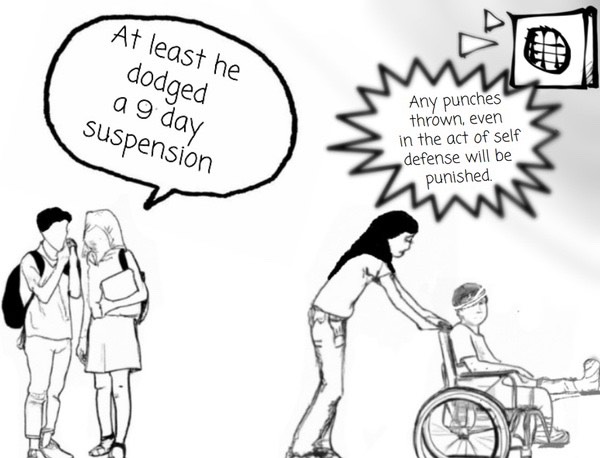Florida Just Made it Easier to Put People to Death. And That’s Bad.
February 26, 2020
Ray Krone, the hundredth death row exoneree in the United States, was wrongfully convicted of stabbing and killing a 36 year old woman in 1991. He was found guilty on the account that his teeth mark sample matched that of the bite marks found on the victim’s body, and although no DNA tests were performed, the case was closed. He served ten years in prison as an innocent man. Krone had no criminal record previous to his conviction – he’d never even earned himself a detention.
In January of this year, the Florida Supreme Court ruled that a unanimous jury vote is not necessary to give a defendant the death penalty. Now, only in Florida and Alabama can a person be executed with a simple majority by a jury.
Justice Jorge Labarga, the only dissent among the Florida lawmakers, sees this decision as a “huge step backward” for the state of Florida.
This is, indeed, a devastatingly regressive decision (according to a study conducted by Proceedings of the National Academy of Sciences). In the United States, about 1 in 25 of those executed are actually innocent. And, according to the Death Penalty Information Center, Florida is the state with the highest number of death-row exonerations in the nation since the death penalty was ruled constitutional in 1972, with twenty-nine exonerees.
As of today, there are 10 national organizations advocating for the abolition of the death penalty. Witness to Innocence, whose members range from activists to exonerees, is one of them. The organization was founded in 2003 by Ray Krone and Sister Helen Prejean, internationally renowned anti-death penalty activist, author, and Nobel Prize nominee.
Ray Krone was exonerated from the death penalty in April 2002 when a DNA test proved his innocence. Since then, the man whose DNA actually proved him guilty is currently serving his time in prison.
“I spent a total of ten years, three months and eight days in prison for something I didn’t do,” Krone said in an interview. “The life events that other people take for granted were stolen from me, and no amount of money, sympathy or accolades will ever give me a chance to experience them. They are gone forever.”
His story is not unique. Hundreds of people have spent years, decades, even, awaiting to be put to death for crime they did not commit. And, life after being exonerated is not lollipops and rainbows. Many exonerees experience psychological trauma, have trouble reconnecting with family, and can’t adapt to their “normal life” as a whole.
Not only that, but maintaining the death penalty is expensive — more expensive than life in prison. According to the Florida Public Defender Association, putting a person to death costs $51 million more than life without parole per year. And to carry out each execution, taxpayers pay an estimated $24 million.
As it turns out, a majority of these taxpayers may not even believe in the death penalty. A poll conducted in 2016 by Public Policy Polling revealed that 62% of Floridian respondents preferred some form of life in prison over the death penalty for convicted murderers. Across the nation, a record high of 60% of Americans prefer life sentence to capital punishment. It’s clear that, for many, the idea of a punishment that can never be reversed is not something they’d lik support— let alone pay for.
Although nearly half of all states in America have either abolished it or do not enforce it, in Florida, it is highly unlikely that they will abolish the death penalty anytime soon. Still, innocent people are being put to death. Tax money is being pumped into maintaining a flawed system. It is a crisis. The Florida Supreme Court should be making it harder to give the death penalty; not making it easier.











